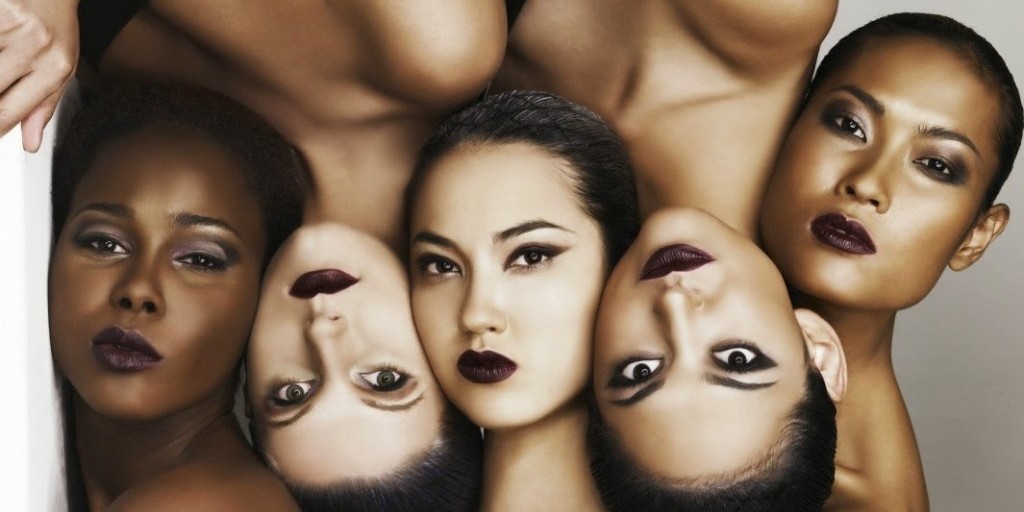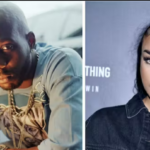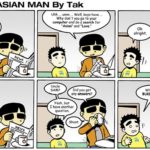By Ana Gonzalez-Barrera
Pew Research Center, July 2, 2019.
About six-in-ten U.S. Hispanic adults (58%) say they have experienced discrimination or been treated unfairly because of their race or ethnicity, though their experiences vary by skin color, according to a recently released Pew Research Center survey.
About two-thirds of Hispanics with darker skin colors (64%) report they have experienced discrimination or been treated unfairly regularly or from time to time, compared with half of those with a lighter skin tone. These differences in experiences with discrimination hold even after controlling for characteristics such as gender, age, education and whether they were born in the U.S. or abroad.
Latinos with darker skin are more likely than those with lighter skin to report a specific incident of discrimination. A majority of Latinos with a darker skin color (55%) say that, because of their race or ethnicity, people have acted as if they were not smart, compared with 36% of Latinos with a lighter skin color. Similarly, about half of Latinos with darker skin (53%) say they have been subject to slurs or jokes, compared with about a third of those with a lighter skin color (34%).
How we asked about skin color in the survey
The survey asked black and Hispanic respondents to identify the skin tone that best resembles their own using a modified version of the Massey-Martin scale. Respondents were shown five skin tones that ranged from fair to dark (see graphic for images used).
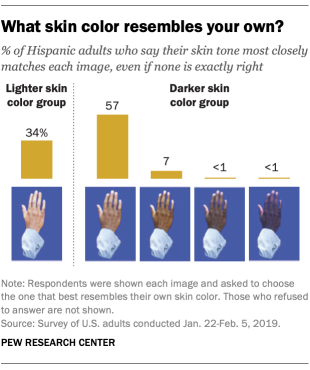
More than half of Hispanics (57%) selected the second-lightest skin color, while about a third (34%) chose the lightest. Far lower shares chose the darker skin tones: 7% selected the middle skin tone while fewer than 1% of Hispanics chose each of the two darkest skin tones.
We then grouped Hispanics into two categories. The “lighter skin” group consisted of those who chose the lightest skin tone, while the “darker skin” group included those who chose the four darkest skin tones. (The number of Hispanics who chose the three darkest skin tones was too small to analyze separately.)

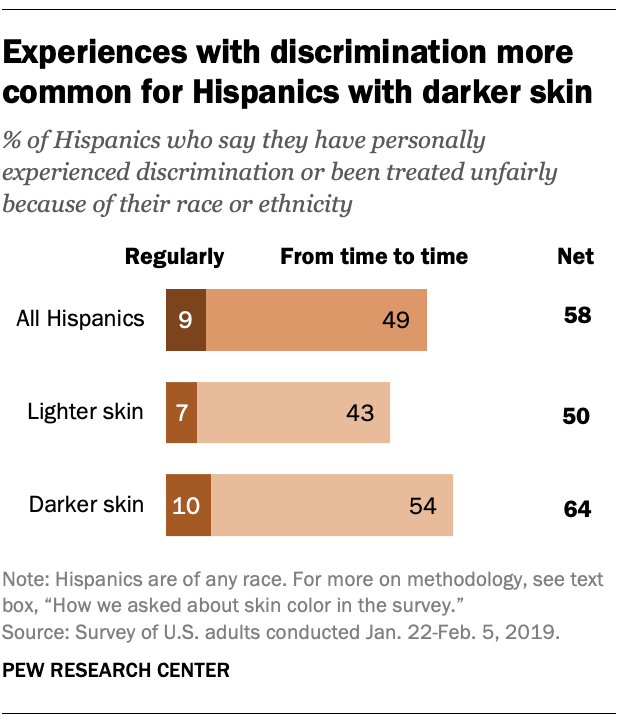
Regardless of skin color, Hispanic experiences with discrimination can differ from those of other groups. Hispanics with darker skin tones are less likely than black Americans to say that people have acted as if they were suspicious of them, or to report having been unfairly stopped by police. Even so, comparable shares of Hispanics with darker skin tones and black Americans say they have been subject to slurs or jokes.
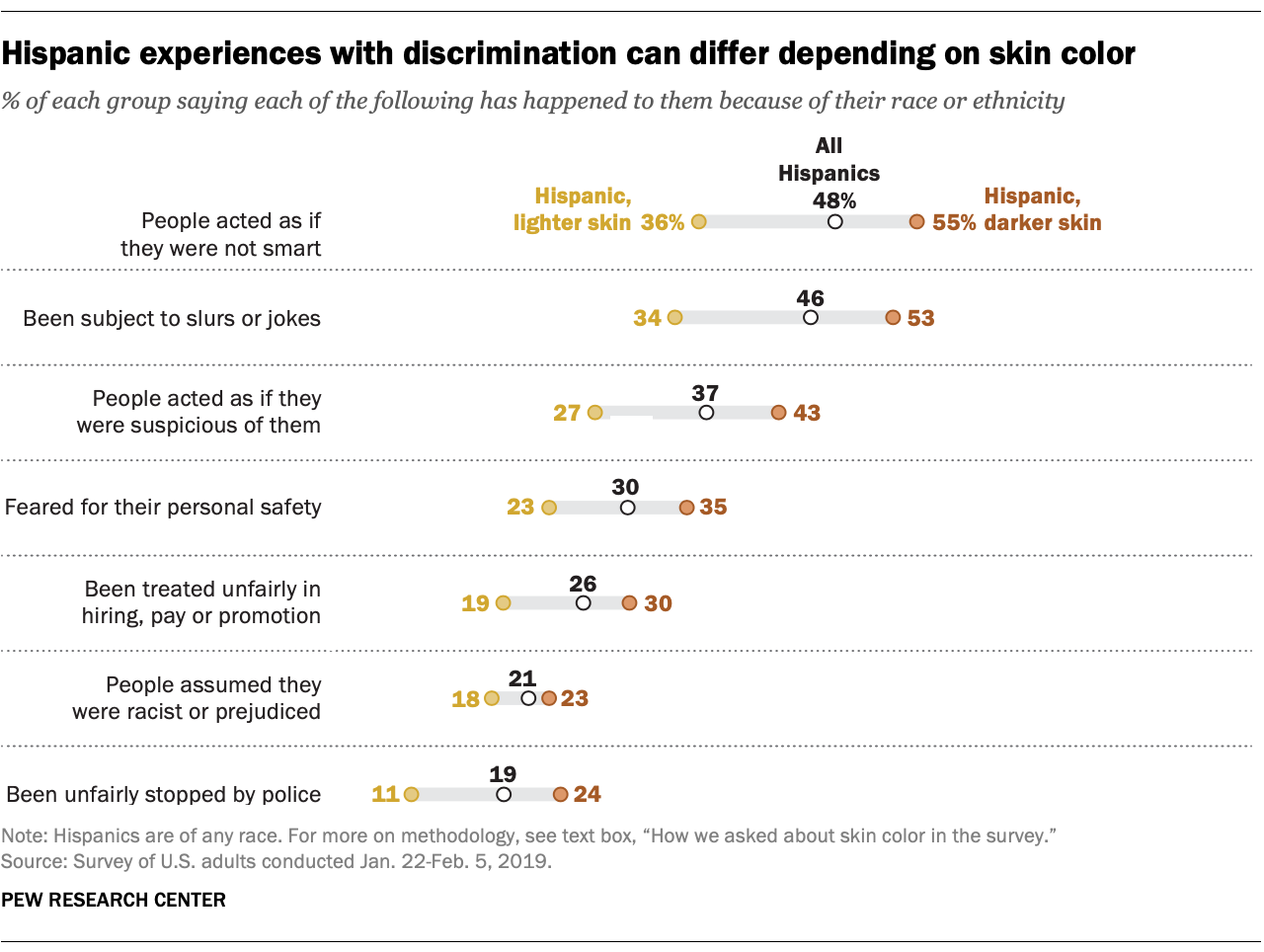
By contrast, Hispanics with a lighter skin tone have had experiences with discrimination that are similar to those of non-Hispanic whites. Among both groups, about a quarter say people have acted as if they were suspicious of them, roughly a third have been subject to slurs or jokes, and about two-in-ten (19%) say they have been treated poorly in hiring, pay or promotion. It is important to note that about half of Hispanics (52%) identify their race as white, a share that increases to about two-thirds (68%) among those with the lightest skin color.
While darker skin color is associated with more frequent experiences with discrimination among Hispanics, this link is less clear among black adults. For blacks, gender and education had a greater effect on their experiences with specific incidents of discrimination than their skin color.
The survey also asked Latinos what race people would ascribe to them if they walked past them on the street. About seven-in-ten (71%) say others see them as Hispanic or Latino, while two-in-ten (19%) say white and less than 5% mention other races. Latinos who say others view them as nonwhite are more likely than those who say they are viewed as white to say they have experienced discrimination or been treated unfairly because of their race or ethnicity (62% vs. 50%). Latinos who say others see them as nonwhite are also more likely to say they have experienced people acting as if they were suspicious of them or as if they were not smart.

.

